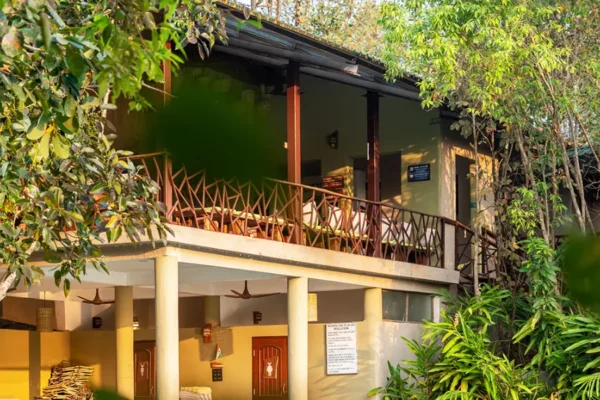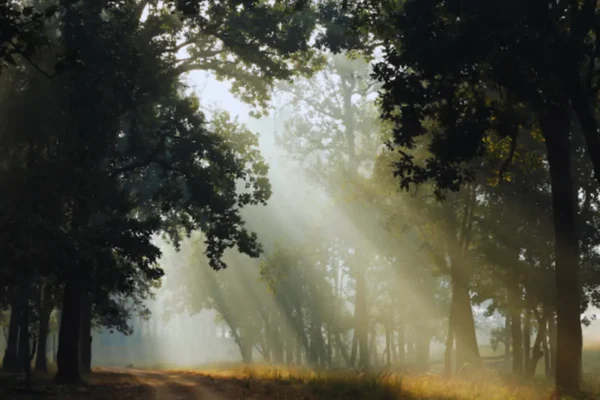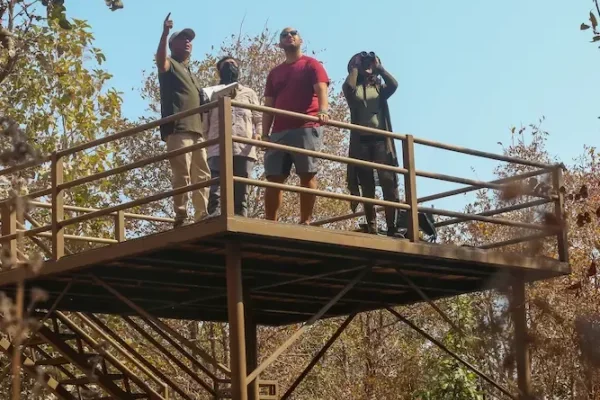Have you ever wondered how climate change is impacting the world around us? It’s easy to see the effects on our daily lives, but what about the natural world? In the heart of India’s wilderness, Rukhad is a sanctuary where the rhythms of nature have remained undisturbed for centuries. But even here, climate change is leaving its mark, altering the behaviour of the wildlife that calls this place home. Join us as we explore how these changes are reshaping life in the jungle and what it means for your next visit to Rukhad Jungle Camp.
Shifting Seasons: How Climate Change Alters Wildlife Patterns

In Rukhad, the changing seasons have always guided the behaviour of its inhabitants. The monsoon brings life-giving rain, while the dry season pushes animals to seek out waterholes. But what happens when these patterns start to shift?
In recent years, Rukhad has seen unseasonal rains and prolonged dry spells. These changes have caused confusion among the animals, leading to shifts in their migration patterns, mating seasons, and feeding habits. For instance, birds that once migrated with the monsoon now struggle to find food when the rains don’t come as expected. Predators like tigers and leopards find their prey scarce during unexpected dry periods, leading them to venture closer to human settlements in search of food. As a visitor to Rukhad Jungle Camp, you might notice these changes first hand. Have you ever wondered why a particular animal is in an unexpected place or why you’re hearing different sounds at unusual times? It’s likely the result of these shifting patterns.
Rising Temperatures: A New Challenge for Rukhad’s Wildlife
Temperature is a critical factor in the lives of Rukhad’s animals. It dictates everything from their daily activity to their survival strategies. But with global temperatures on the rise, these creatures are facing new challenges.
As temperatures soar, water sources dry up faster, leaving animals with fewer places to drink. Herbivores, like deer and wild boar, are forced to travel greater distances to find water, putting them at greater risk from predators. Even the mighty tiger, Rukhad’s most iconic resident, feels the heat. Higher temperatures can lead to heat stress, affecting the tiger’s ability to hunt and care for its young. During your stay at Rukhad Jungle Camp, you might find the animals more active during the cooler parts of the day, seeking shade and water during the intense midday heat. Have you ever considered how rising temperatures are not just uncomfortable for us, but life-threatening for these creatures?
Altered Food Chains: The Ripple Effect of Climate Change
The delicate balance of Rukhad’s food chain is another victim of climate change. As plants and trees respond to shifting weather patterns, the animals that depend on them must also adapt. But what happens when these changes occur too quickly?
For herbivores, a change in plant life means a change in diet. Some plants may no longer thrive in Rukhad’s changing climate, leaving animals with fewer options for food. This can lead to malnutrition and weakened immune systems, making them more susceptible to disease and predation. In turn, predators find it harder to hunt as their prey becomes more elusive or scarce. This ripple effect can have devastating consequences for the entire ecosystem. Imagine walking through the jungle and noticing that certain plants are less abundant or that the animals seem fewer in number. These are subtle signs of a food chain under stress, a reality that Rukhad Jungle Camp visitors are increasingly witnessing.
The Role of Conservation: How We Can Make a Difference

Climate change is reshaping the world, and Rukhad’s wildlife is no exception. From shifting seasons to rising temperatures and altered food chains, the animals of Rukhad are facing unprecedented challenges. But with these challenges come opportunities—to learn, to adapt, and to make a difference.
What can be done to protect Rukhad’s wildlife from the effects of climate change? Conservation efforts are more critical than ever. Protecting habitats, restoring water sources, and monitoring wildlife are all essential steps in helping Rukhad’s animals adapt to their changing environment.
At Rukhad Jungle Camp, conservation isn’t just a goal; it’s a way of life. The camp’s initiatives include supporting local conservation projects, educating visitors on the importance of preserving the environment, and promoting sustainable tourism practices. By choosing to stay at Rukhad Jungle Camp, you’re not just enjoying the beauty of the jungle; you’re contributing to its preservation. Have you ever thought about how your actions, even something as simple as where you choose to stay, can have a positive impact on the environment?



